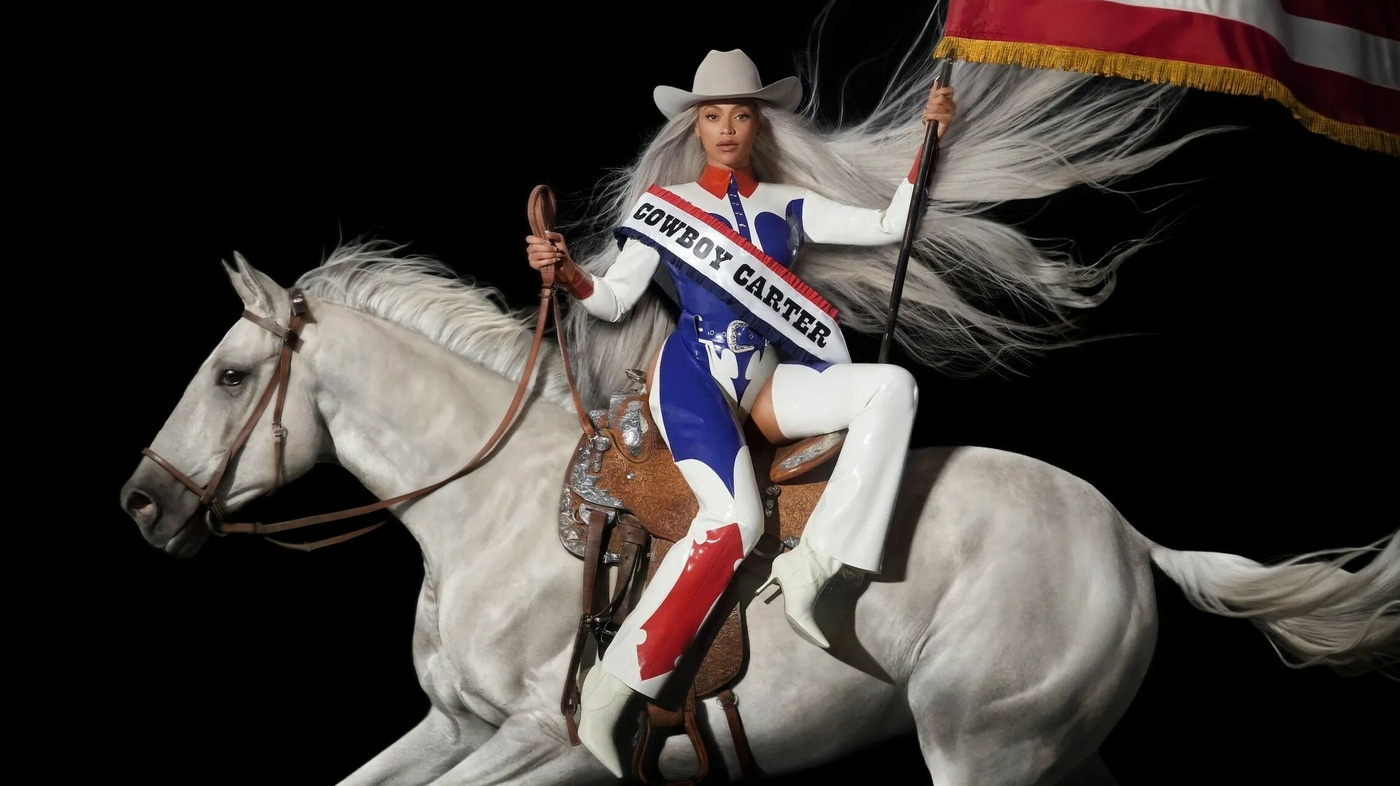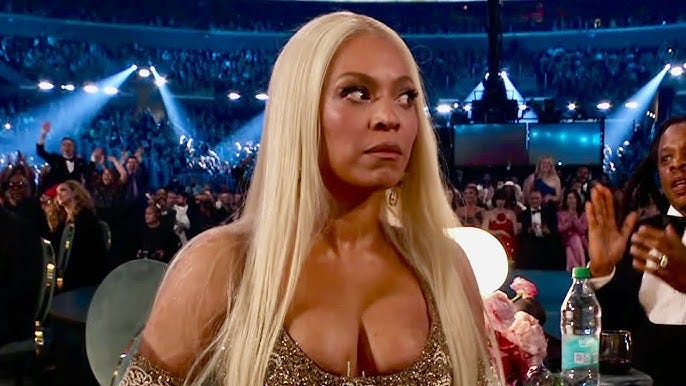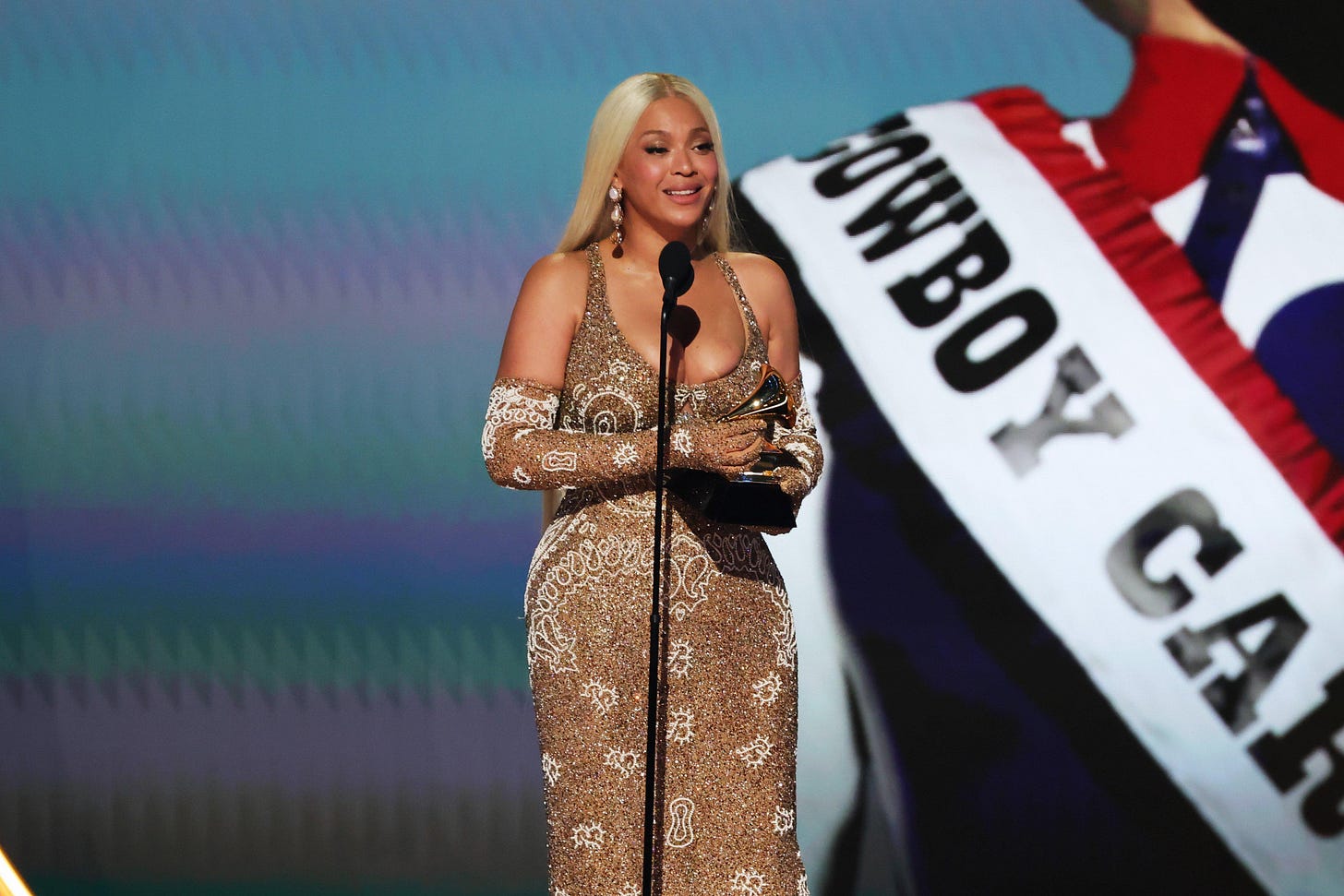Beyoncé made a country album called Cowboy Carter. She rode in on a horse, of course. Delivered (to my mind) the best album of her career. And then she won the Grammy for Best Country Album.
And—this next part is very important—a lot of white people lost their minds.
Now, to be fair, white people were already halfway there. Country music has been nervous ever since Lil Nas X snuck onto the charts like a glittery outlaw and broke the Billboard fence with “Old Town Road.” But Beyoncé didn’t just kick the gate in. She bought the whole ranch.
So what did the Grammy people do? What any terrified institution does when Black people do something historic on its watch: they re-wrote the rulebook so it could never happen again.
THE GREAT DIVIDE
As of this year, there will no longer be a Best Country Album Grammy. That was too simple, too dangerous. That category is now split in two:
Best Traditional Country Album (read: white people with guitars)
Best Contemporary Country Album (read: Beyoncé, Shaboozey and whoever else they think will scares the horses)
The Recording Academy said this was to “better reflect the evolving landscape of country music,” which is a lovely way of saying “Oh God, what just happened?”
This is how you do segregation in 2025. You don’t hang a sign that says “Whites Only.” You just create two lines. You call one of them “traditional.” Then you let people assume what the other one means.
GENRE IS A LIE
Genres are fake.
Genres are not natural divisions like rivers or mountain ranges. They are invented by record companies and enforced by algorithms and angry men with pickup trucks. You think the difference between “country” and “blues” is a musical one? No, sweet child. It’s about who gets paid and who gets remembered. If a white man sings about a train, it's country. If a Black man sings about the same train, it’s blues. If a white woman sings about revenge, it's country. If Beyoncé does it, it’s “genre-bending.”
Country music was always a mixed-race baby born in the Southern backwoods, raised on banjos stolen from Africa and harmonies borrowed from Black churches. They just yoinked it and called it their own when it become popular and in good 'ol American fashion, wrote a myth, posing as history.
THIS IS NOT “PROGRESS”
Let’s not fall for it. Let’s not pretend this is about making more space. This is about containment. This is about genre as border patrol.
The Recording Academy saw a Black woman walk off with their big country trophy, and they said: “Well, that can’t happen again.”
So they built a new shelf. One where they could politely place Beyoncé, and whoever else they don’t quite know what to do with. And on the original shelf—the one labeled “traditional”—they will continue to stack up the twanging white boys in hats who sing about beer and 'merica and the women they never seem to understand.
This isn’t progress. This is gerrymandering. This is redistricting. This is how you keep winning the election after the other side gets more votes.
BEYONCÉ IS NOT THE PROBLEM
Let me be very clear: Beyoncé didn’t break country music.
She revealed it.
She walked into a genre that said “We don’t know where you belong,” and made it sound like as comfortable for her as her grandmother’s front porch. She reminded people that the banjo has African roots, that line dancing came from Black juke joints, and that country’s soul was always Blacker than Nashville wants to acknowledge.
Do you know how genre categories get decided at the Grammys? A bunch of people sit around a table. They are not musical ethnologists. They are not historians. They are mostly industry folks, and most of them are white. They vote on whether an album “fits.”
This year, they voted that Cowboy Carter “fit” as country.
Next year, they made sure it wouldn’t.
It’s the oldest American trick in the book: move the goalpost after the touchdown. It’s what they did when Black students started passing standardized tests. It’s what they did when Black families moved into suburbs. It's what they did when Black parents gave their kids white sounding names to make it easier for them to get job interviews (they added second rounds of interviews). They don’t say, “You can’t be here.” They say, “The rules have changed.”
HISTORY DOESN’T RHYME. IT LOOP PEDALS.
Here’s the part where I confess:




